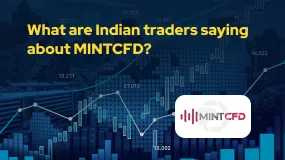简体中文
繁體中文
English
Pусский
日本語
ภาษาไทย
Tiếng Việt
Bahasa Indonesia
Español
हिन्दी
Filippiiniläinen
Français
Deutsch
Português
Türkçe
한국어
العربية
Doo Group Broadens Global Footprint with Indonesian Broker Acquisition
Abstract:Doo Group has announced its acquisition of PT Prima Tangguharta Futures, a Jakarta-based broker specialising in online derivatives trading. This move represents a significant step in Doo Group's regional expansion strategy and reinforces its growing presence in Southeast Asia.

Singapore-headquartered brokerage firm Doo Group has announced its acquisition of PT Prima Tangguharta Futures, a Jakarta-based broker specialising in online derivatives trading. This move represents a significant step in Doo Group's regional expansion strategy and reinforces its growing presence in Southeast Asia.
Established in 2004, PT Prima Tangguharta Futures offers trading services in foreign exchange derivative contracts, stock indices, commodities, and Contracts for Difference (CFDs). The firm operates on the widely adopted MT5 trading platform, catering to a local client base with a focus on accessible, online trading solutions.
The acquisition includes the integration of a licence issued by Indonesias commodities and derivatives regulator, the Badan Pengawas Perdagangan Berjangka Komoditi (BAPPEBTI). Doo Group is in the process of rebranding the entity to PT Doo Financial Futures, with the existing website (ptf.co.id) set to transition to id.doofinancial.com, pending regulatory approvals for the name change.

This development is the latest in a series of strategic acquisitions by Doo Group as it aims to strengthen its global regulatory coverage and expand its service offerings. Earlier this year, the brokerage obtained a Capital Markets Services (CMS) licence from the Monetary Authority of Singapore (MAS), enhancing its operations in its home market. It also secured a Type 1 licence in Hong Kong, providing greater flexibility in offering financial products in the region.
In addition, Doo Group recently added a licence from the Cyprus Securities and Exchange Commission (CySEC), enabling it to penetrate the European retail trading market for CFDs. These efforts reflect the company's focus on adhering to stringent regulatory standards across multiple jurisdictions, underscoring its commitment to providing secure and compliant trading environments.

Disclaimer:
The views in this article only represent the author's personal views, and do not constitute investment advice on this platform. This platform does not guarantee the accuracy, completeness and timeliness of the information in the article, and will not be liable for any loss caused by the use of or reliance on the information in the article.
Read more

AssetsFX Scam Alert: 5 Troubling Signs
Forex trading has become a critical game now because of advancements in technology. Due to this Unfortunately, scam brokers have also entered in the Forex market. Therefore, you need to stay alert. This article aims to warn all traders and investors. Read carefully and stay aware.

Forex4Money: Where Your Money Goes In, But Never Comes Out!
Discover how Forex4Money traps investors with fake profit promises and blocked withdrawals. Read real complaints and protect yourself from this unregulated forex scam.

Forex Success Stories: Lessons You Can Use to Win
There can be many ups and downs even for the world’s best forex traders. However, they remain undeterred in their vision to overcome the challenges that come their way. That’s why they form part of forex success stories that continue to inspire generations. One can inherit some lessons to be among successful currency traders. In this article, we will be sharing the lessons you can use to be successful in forex trading.

What are Indian Traders saying about MINTCFD?
MINTCFD is an India-based broker. It's important to note that independent watchdogs have issued scam alerts against the broker. They label MintCFD as risky and possibly fraudulent. In this Article, we will tell you the red flags of MINTCFD to protect your money
WikiFX Broker
Latest News
Euro zone inflation holds steady at higher-than-expected 2% in July
Forex Success Stories: Lessons You Can Use to Win
Scam Alert: FCA Issued Warning! Check the List of Unauthorized Brokers Below!
FCA Forex Trading Regulations Explained – What Every Trader and Broker Must Know
FIBO Group: A Closer Look at Its Licenses
Making Money with Forex Weekend Trading
Interactive Brokers Expands Forecast Contracts to Europe
Robinhood Gains 2.3M New Accounts, Platform Assets Close to $280B
CVS shares pop on earnings beat and outlook, as retail pharmacy and insurance units improve
CNBC's Inside India newsletter: Why an India-U.K. trade deal does not make U.S.-India agreement any easier
Currency Calculator


